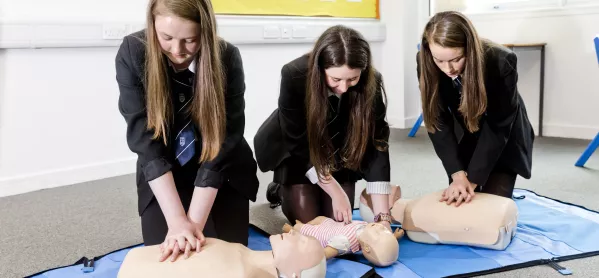Every child should have the opportunity to learn skills such as CPR at school because it could “potentially save a life”, the education secretary has said.
Damian Hinds said he wanted every child to have “the knowledge and skills they need to keep themselves safe and help others”, and that under the government’s plans, all schools will have to teach this from 2020.
Under the government’s proposed new guidance for health, sex and relationships education, life-saving skills will be made compulsory in all state-funded schools.
This will mean that by the end of secondary school all pupils will have been taught how to administer CPR, the purpose of defibrillators, and basic treatments for common injuries.
Schools will be encouraged to teach these skills from September 2019, ahead of it becoming compulsory in September 2020.
Mr Hinds said: “On arriving at university, I was struck that the American students I met knew how to do CPR - and I didn’t have a clue.
“As a father, I want my children to have the knowledge and skills they need to keep themselves safe and help others, and, as education secretary, I want that for every child.
“Learning the basic skills of first aid and techniques like CPR will give young people the confidence to know that they can step in to help someone else in need and in the most extreme cases - it could potentially save a life.
“That’s why we took the decision to include health education alongside relationship education for primary school children and relationship and sex education for secondary children.
“These subjects are a crucial part of our work to ensure children learn the wider skills they need to flourish in the modern world.”
The government’s plans were welcomed by the British Heart Foundation.
Simon Gillespie, the chief executive of the charity, said: “The Department for Education’s plans to introduce CPR on to the curriculum is a decisive moment in the battle to improve cardiac arrest survival rates, following years of campaigning by the BHF and others.
“There are 30,000 out-of-hospital cardiac arrests every year, and each day people needlessly die because bystanders don’t have the confidence or knowledge to perform CPR and defibrillation.
“This is why all schoolchildren should be given the opportunity to learn these skills.
“Introducing CPR lessons into health education in all state-funded secondary schools is a significant step that promises to improve the odds of survival for countless people who have a cardiac arrest in the future.”




